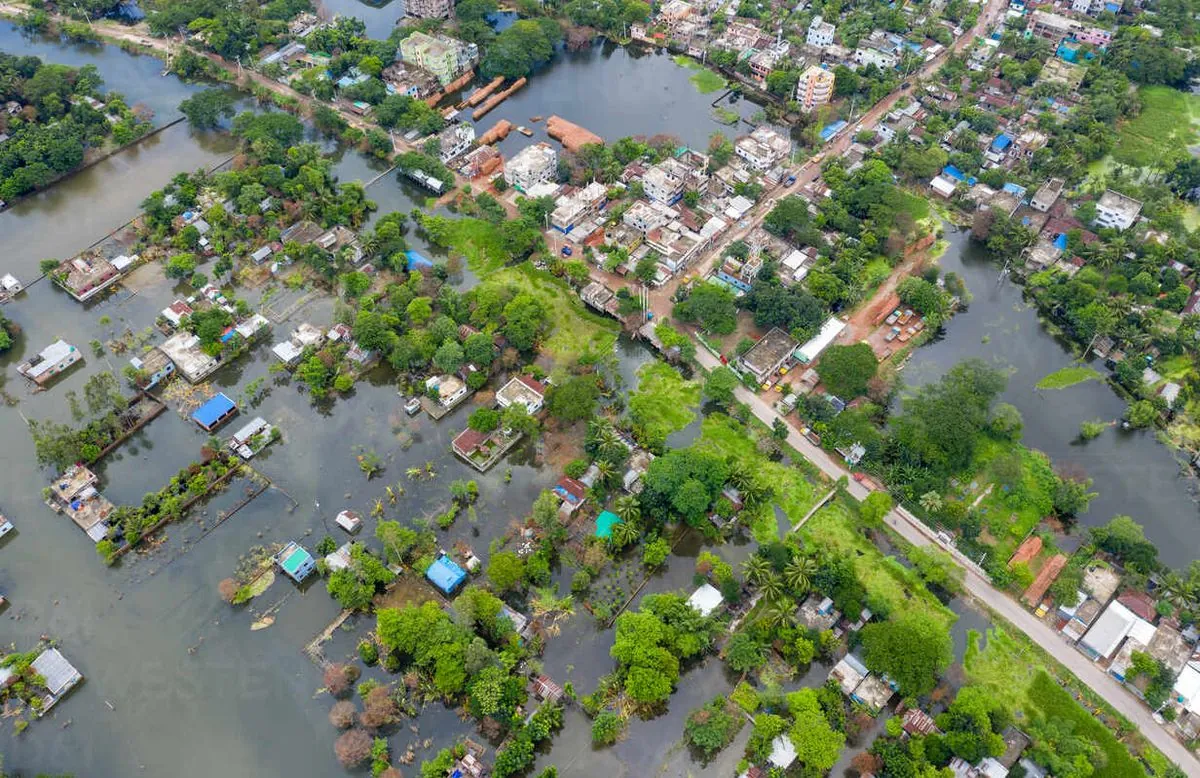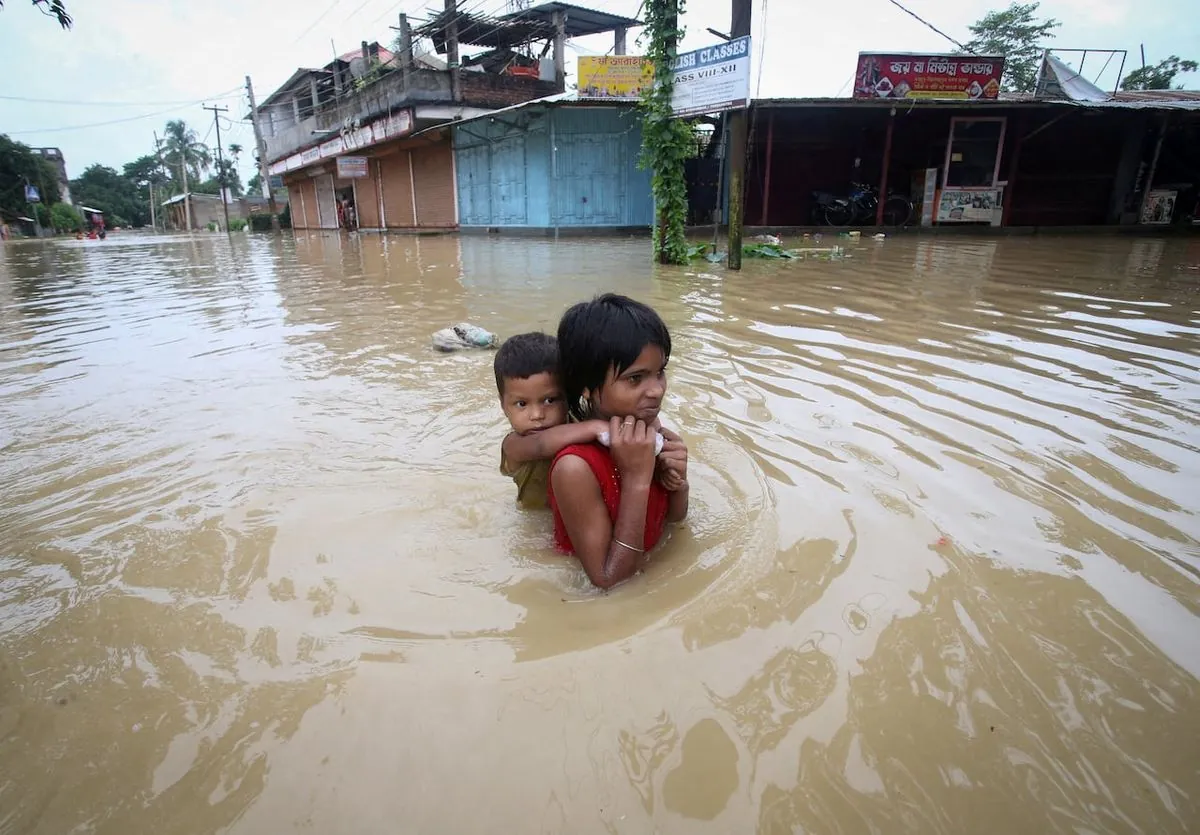Bangladesh Flood Crisis Deepens: Millions Affected, Disease Concerns Rise
Severe floods in Bangladesh have claimed 71 lives, affecting millions. As waters recede, concerns grow over waterborne diseases. UNICEF appeals for $35 million to aid children at risk.

Bangladesh, one of the world's most flood-prone countries, is currently grappling with its most severe flooding in three decades. The death toll has risen to 71, with millions of people stranded in devastated areas. The floods, triggered by relentless monsoon rains and runoff from upstream waterways, have wreaked havoc over the past two weeks.
Bangladesh, situated on the Ganges-Brahmaputra Delta, is home to over 160 million people, making it one of the world's most densely populated countries. The current crisis has affected approximately five million individuals, with more than 580,000 families marooned in 11 flood-hit districts. These families are in urgent need of food, clean water, medicine, and dry clothing.
Relief efforts are underway, with nearly 500 medical teams providing treatment. The army, air force, navy, and border guard are assisting in these efforts. Authorities are now focusing on preventing the spread of waterborne diseases, a common aftermath of such disasters, and ensuring the availability of clean drinking water.

The Directorate General of Health Services reported that nearly 5,000 people had been hospitalized over the past 24 hours for cases of diarrhoea, skin infections, and snake bites. In Dhaka, one of the world's most populous cities, heavy rain on Tuesday swamped many districts, submerging roads in knee-deep to waist-high water and causing massive traffic jams.
The economic impact of the floods is significant. A preliminary assessment by the agriculture ministry estimates crop damage worth 33.5 billion taka ($282 million), affecting more than 1.4 million farmers. This is particularly concerning as Bangladesh's economy is heavily dependent on agriculture.
Climate change is exacerbating the annual flooding problem in Bangladesh. A 2015 analysis by the World Bank Institute estimated that 3.5 million people in the country were at risk of annual river flooding, a number that has only increased in recent years. Bangladesh loses about 1% of its arable land annually due to climate change, further compounding the challenges faced by this vulnerable nation.
The United Nations Children's Fund (UNICEF) has raised alarm about the situation, stating that two million children are at risk from this severe flooding. UNICEF has launched an urgent appeal for $35 million to provide essential supplies to those affected.
"Year after year, the lives of millions of children in Bangladesh are being devastated by floods, heatwaves and cyclones. Climate change is clearly altering children's lives."
Despite these challenges, Bangladesh has been implementing innovative flood adaptation strategies and a comprehensive Delta Plan 2100 to manage water resources. The country has also made significant progress in reducing poverty in recent decades, demonstrating resilience in the face of recurring natural disasters.
As Bangladesh continues to battle this crisis, the international community's support will be crucial in mitigating the immediate impacts and addressing the long-term challenges posed by climate change.


































